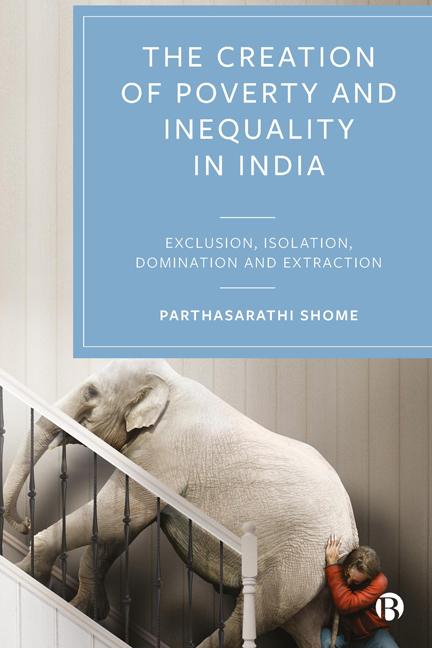Book contents
- Frontmatter
- Dedication
- Contents
- List of Figures and Tables
- Preface
- 1 Introduction
- Part I Macro-Economy and Human Development
- Part II Sources of Inequality and Poverty
- Part III Sectoral Effects
- Part IV Radical Humanism
- Appendix 2.1 Cash Use in India: A Cross-Country Comparison
- Appendix 2.2 Macro-Economic Comparisons: Selected Economies
- Appendix 4.1 Selected Country Tables
- Appendix 5.1 Evidence on Inequality in the US
- Appendix 8.1 Impact of Land Policy
- Appendix 11.1 Impact of Asset Transfer on the Poor
- Index
7 - Untouchability: Ambedkar and Early Reformers
Published online by Cambridge University Press: 18 January 2024
- Frontmatter
- Dedication
- Contents
- List of Figures and Tables
- Preface
- 1 Introduction
- Part I Macro-Economy and Human Development
- Part II Sources of Inequality and Poverty
- Part III Sectoral Effects
- Part IV Radical Humanism
- Appendix 2.1 Cash Use in India: A Cross-Country Comparison
- Appendix 2.2 Macro-Economic Comparisons: Selected Economies
- Appendix 4.1 Selected Country Tables
- Appendix 5.1 Evidence on Inequality in the US
- Appendix 8.1 Impact of Land Policy
- Appendix 11.1 Impact of Asset Transfer on the Poor
- Index
Summary
Introduction
This chapter presents in a nutshell the development of untouchability as progressively enunciated in Brahmanic law. It could explain to some extent the pre-conditions of non-Brahminic low-caste birth into a drudgery of life, a condition that, in many instances, ends only with death. It draws from the work of Ambedkar (1936) and supplements it from the works of other scholars. Ambedkar (1891– 1956), the father of India's constitution, himself belonged to the Scheduled Caste (SC). What is not so well-known is his unsurpassed treatise on caste and untouchability, sorting through ancient texts to identify what they had to say on caste matters, the confusion they caused, their irrationality and their dogma, yet the power they held, and continue to hold on Hindu society.
The chapter also explores the role and efforts made by early Indian reformers to subdue the virulence of untouchability and caste if not to eradicate them and, essentially, their failure to do so despite their own exemplary lives with regard to the abrogation of caste practices. Several examples are given and instances are provided from the literature of Tagore, the Nobel laureate from Bengal, and the writings of Kalki, the Tamil literary figure, despite which they encountered lack of success in their endeavours.
Ambedkar's analysis of Hindu shastra
The untouchable caste Ambedkar was born into is known as Mahar, a group which was viewed by the British as ‘inferior village servants’. Nevertheless, Ambedkar's father became an Indian Army officer; hence Ambedkar could attend school though teachers were often reluctant to mark the exams of such lower-caste boys. Ambedkar was the first in his community to graduate from high school who, subsequently, graduated in economics and politics from Bombay University. There he met Sayaji Rao III, the Maharajah of the princely state of Baroda, who was in favour of the removal of untouchability. He sponsored Ambedkar's further education at Columbia University, New York, where he completed a Masters degree and a PhD. He also attended the London School of Economics (LSE). During this period, Ambedkar wrote on various issues including a history of caste in India.
- Type
- Chapter
- Information
- The Creation of Poverty and Inequality in IndiaExclusion, Isolation, Domination and Extraction, pp. 177 - 192Publisher: Bristol University PressPrint publication year: 2023



